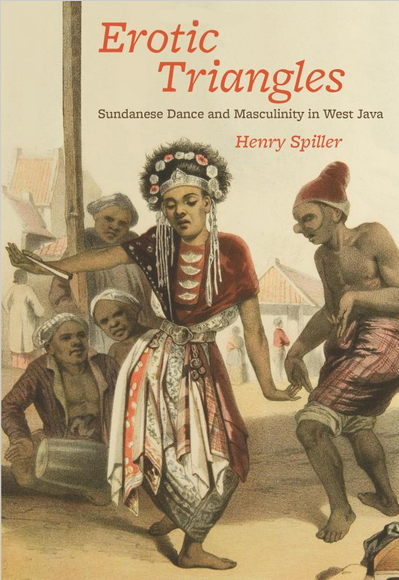Erotic Triangles: Sundanese Dance And Masculinity In West Java (Chicago Studies in Ethnomusicology)

"This is a highly original and illuminating study of Sundanese performing arts and gender ideology. Theoretically challenging and historically rich, Erotic Triangles frames men's improvisational dance as the playful working out of gendered identity relations." - Andrew N. Weintraub, University of Pittsburgh"
Henry Spiller, the author, is assistant professor of music at the University of California, Davis, and the author of Focus: Gamelan Music of Indonesia.
In West Java, Indonesia, all it takes is a woman's voice and a drumbeat to make a man get up and dance. Every day, men there - be they students, pedicab drivers, civil servants, or businessmen - breach ordinary standards of decorum and succumb to the rhythm at village ceremonies, weddings, political rallies, and nightclubs. The music the men dance to varies from traditional gong ensembles to the contemporary pop known as dangdut, but they consistently dance with great enthusiasm. In "Erotic Triangles", Henry Spiller draws on decades of ethnographic research to explore the reasons behind this phenomenon, arguing that Sundanese men use dance to explore and enact contradictions in their gender identities. Framing the three crucial elements of Sundanese dance - the female entertainer, the drumming, and men's sense of freedom - as a triangle, Spiller connects them to a range of other theoretical perspectives, drawing on thinkers from Eve Kosofsky Sedgwick, Levi-Strauss, and Freud to Euclid. By granting men permission to literally perform their masculinity, Spiller ultimately concludes, dance provides a crucial space for both reinforcing and resisting orthodox gender ideologies.
| Attachment | Size |
|---|---|
| Screen Shot 2.png | 424.76 KB |
- Editor1's blog
- Login to post comments